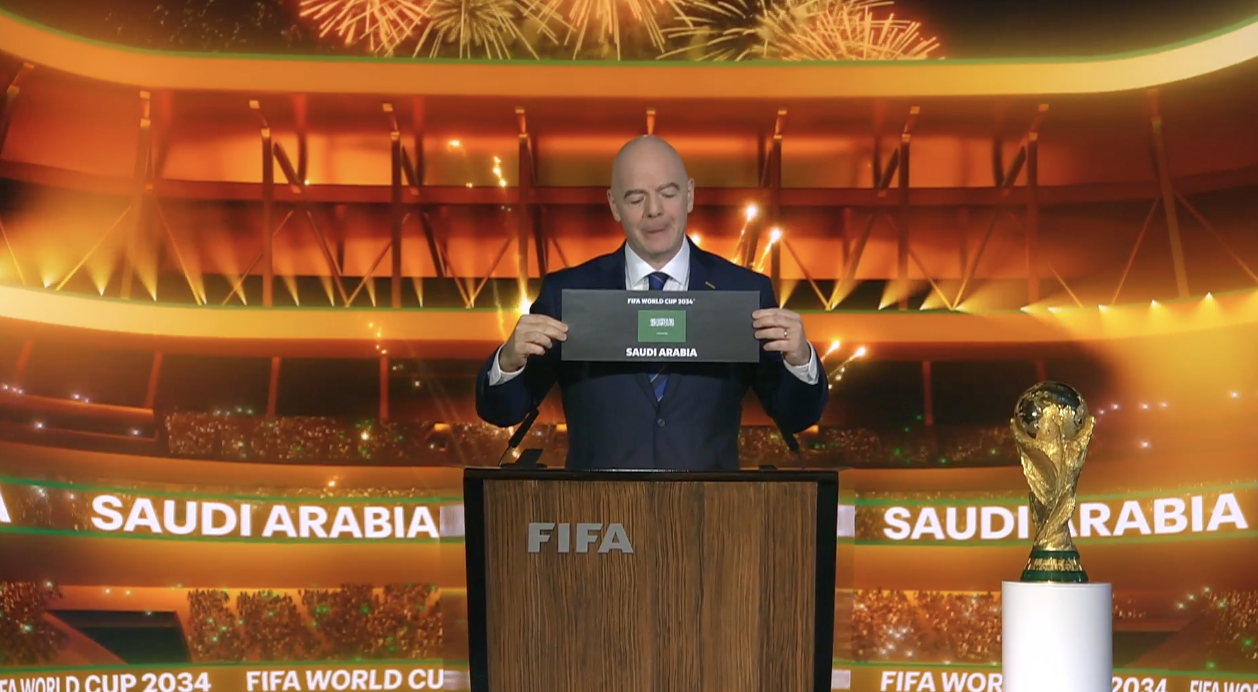May 28 – On the tenth anniversary of FIFAGate, FairSquare, NGOs, academics, writers, whistleblowers and football supporters’ groups have argued that “FIFA is arguably more poorly governed today than a decade ago”.
FIFA has responded that it is “a completely new organisation”, and that 2015 marked the beginning of a process of “fundamental change”.
“We have been able to fundamentally change FIFA from a toxic organisation at the time, to a respected and trusted global sports governing body,” said a FIFA spokesperson.
On the eve of a FIFA Congress on 27 May 2015, Swiss authorities, acting on behalf of the U.S. Department of Justice, arrested seven senior football officials at Zurich’s Baur au Lac hotel. The dramatic early-morning raid was part of a far-reaching investigation into corruption at the heart of world football’s governing body. The image travelled around the world and FIFA forever became a byword for corruption.
Within days of the arrests, long-serving FIFA president Sepp Blatter stood down, bringing an end to his 17-year tenure. His departure set in motion a period of upheaval that culminated in the election of Gianni Infantino as president in February 2016, amid pledges to overhaul the organisation’s governance and restore its tarnished reputation.
However, critics of Infantino’s regime issued a statement on Tuesday, arguing that FIFA has regressed, citing eight examples of its “failures”, including “an extractive business model for World Cup tournaments, placing a huge financial burden on host governments and taxpayers” and “selective enforcement of its statutory rules”.
“This statement demonstrates not only the rank failure of the reforms enacted under the presidency of Gianni Infantino, but also the breadth of expert opposition to and frustration with FIFA’s dysfunctional governance model,” said Nick McGeehan, the co-director of FairSquare, which coordinated the joint statement.
Among the failures, the statement noted: “FIFA bent, changed and broke its rules firstly to ensure that Saudi Arabia would be the sole bidder for the 2034 World Cup.”
It also highlighted FIFA’s sponsorship deal with Aramaco, Saudi Arabia’s national oil company: “In the midst of a climate crisis, FIFA World Cups will now bear and promote the brand of the world’s biggest single corporate emitter of greenhouse gases.”
Last but not least, FairSquare and others lamented Infantino’s cosying up to autocrats and Donald Trump.
“The leadership of FIFA has zero credibility. It has no intention of addressing the serious structural flaws in the organisation, and continues to make choices that are obviously not in the best interests of the game. Reform is desperately needed,” said Anders Kjellevold, chairman of football supporters’ group Norsk Supporterallianse in Norway, one of nine organisations that added their name to the joint statement.
The statement was signed by 35 signatories. On social media Miguel Maduro, ousted in 2017 by FIFA’s leadership from his role as head of the governance committee, wrote: “An important statement by @fairsquareprojects and many credible experts,” wrote Maduro.
“I’m sad to say, it is quite right in its assessment of FIFA reforms. The time has long passed for a genuine reform of sports governance. When will it finally happen?”
The FIFA spokesperson said:
“A few weeks ago, the very same authorities that had to intervene FIFA in 2015 – the US Attorney General and FBI Director – travelled to our offices in Miami, to meet FIFA leadership and work together as a highly respected partner.
“The 2015 scandal marked a turning point for the organisation, allowing a new FIFA to emerge. Thanks to the intervention of the US authorities back in 2015, we have been able to fundamentally change FIFA from a toxic organisation at the time, to a respected and trusted global sports governing body focusing on its mandate to develop football all around the world.
“There’s been a deeply rooted governance and financial management reform with a clear focus on transparency. This has been acknowledged by a number of international institutions, for instance by the Association of Summer Olympic Federations in its regular reports on transparency and good governance (https://www.asoif.com/), where FIFA’s work has consistently received high grading since 2016. But more importantly, the fundamental change operated by FIFA has been recognised by the US Department of Justice, which awarded $201 million to the FIFA Foundation as compensation for losses suffered by FIFA, Concacaf and CONMEBOL as a result of decades of corruption in football.
“Another crucial change has been the way in which development programmes are handled. There’s been a sevenfold increase in investment in football development compared to the pre-2016 period, bearing in mind that revenues have not increased by the same factor; the increase in investment is a result of the new FIFA being more efficient, well-governed and fit for purpose. Under the new FIFA Forward program, each one of the 211 member associations have the same rights and obligations and development projects are planned, implemented and monitored in accordance with clear regulations, with every recipient of funds undergoing a yearly central audit. Thanks to this program, Member Associations are developing all over the world with state of the art facilities, stadium renovations, crucial infrastructure construction, capacity development for federations from all sorts of areas for men, women, boys and girls.
“Also, a whole series of new processes and structures have been introduced, including a whistleblower helpline, the establishment of entire divisions and teams – Compliance, Financial Governance, Internal audit – and entirely revised and fully independently audited bidding processes were introduced for FIFA’s top competitions at both men’s and women’s level.
“Today, FIFA is a completely new organisation with more than 800 staffs, the immense majority of which were hired after 2016, serving global football from offices in Zurich, Paris, Miami, Jakarta and 11 regional offices.”
Contact the writer of this story at moc.l1751309509labto1751309509ofdlr1751309509owedi1751309509sni@i1751309509tnuk.1751309509ardni1751309509mas1751309509

